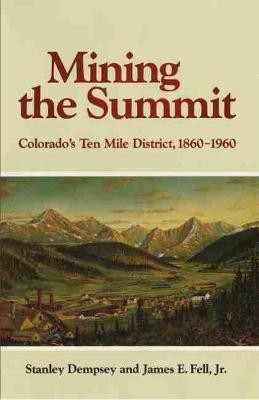Mining the Summit(English, Paperback, Dempsey H. Stanley)
Quick Overview
Product Price Comparison
Colorado's Ten Mile Mining District was north of Leadville and south of Copper Mountain. Sandwiched between two mountain ranges, fully two miles above sea level, the district had a remarkable history that was a microcosm of the mining West. The first adventurers came to Ten Mile in 1860, searching for gold - the instant wealth that might be found on the icy streambed bordering an ancient Indian trail through the Ten Mile Valley. But digging through snowdrifts in mid-summer was just too much, the gold petered out, and the boom collapsed. Twenty years later came a silver stampede in the middle of winter, which was followed by many more dramatic events: a bonanza king shot in the midst of a claim dispute, a devastating fire that wiped out an entire town in a single night, a railroad war, the battle of an eminent geologist against a recalcitrant federal bureaucracy, and the invention of a world-famous piece of mining machinery by an introspective entrepreneur. Finally, during World War I came the rush to mine molybdenum, the metal that made Ten Mile one of the world's most important mining districts, one that rivaled Leadville and Cripple Creek. Although mineral production impelled every phase of ten Mile's development, the climate and the mountain geography also influenced the men and women who lived there. The district was so high that the short summers, long winters, and frequently inclement weather altered production, hampered communications, and disrupted transportation, making the miners' hard life much more difficult. Subfreezing temperatures, deep snows, and deadly avalanches created havoc from October to May and beyond, while the spring runoff turned roads into quagmires. Although Ten Mile's history and situation were unique, the district reflected developments throughout Colorado and the mining West. Each new discovery triggered a larger-scale mobilization of capital and labor, the use of more advanced technology, and the ongoing development of the infrastructure needed to support mining. Such themes characterized American mining during the century covered in this fascinating book.


